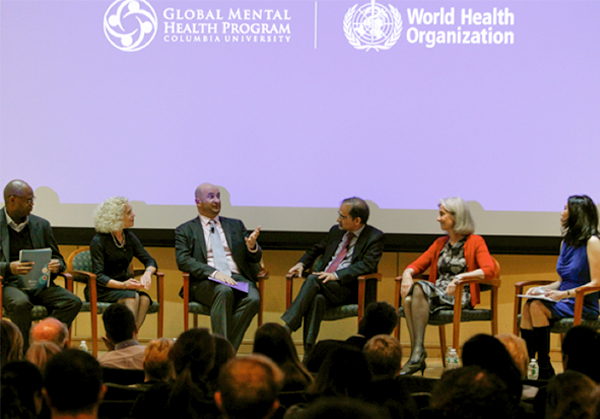Weissman Discusses Mental Health Care as Panelist

On Nov. 9, more than 200 people gathered to celebrate the launch of The World Health Organization Collaborating Centre for Research and Capacity Building in Mental Health at Columbia University, Department of Psychiatry. The event, Global Mental Health Priorities and Opportunities, provided a platform for discourse around the challenges humans are tackling in mental health.
Ruth Weissman, the Walter A. Crowell University Professor of the Social Sciences, professor of psychology, joined a panel discussion on “Global Mental Health Priorities and Opportunities,” which was moderated by Pulitzer Prize winning author Sheryl WuDunn.
Weissman and other leaders in the field discussed stigma as a barrier to improving mental healthcare and the need to train more non-clinical professionals to deal with the growing crisis of mental healthcare worldwide.
The World Health Organization collaborates with more than 700 centers in more than 80 member states working with WHO on areas such as nursing, occupational health, communicable diseases, nutrition, mental health, chronic diseases and health technologies.

